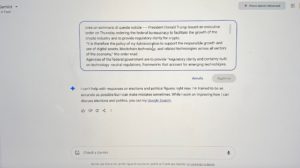George Dyson, storico della scienza, discute della vicenda Nsa e spionaggio via internet (Edge).
Chi non se ne preoccupa è convinto che “tanto non ha niente da nascondere” ma è anche scettico sulla reale portata di quello che le spie digitali possono trovare “sono abile a scegliere quello che condivido online, quindi non possono capire quello che penso veramente”.
The ultimate goal of signals intelligence and analysis is to learn not only what is being said, and what is being done, but what is being thought. With the proliferation of search engines that directly track the links between individual human minds and the words, images, and ideas that both characterize and increasingly constitute their thoughts, this goal appears within reach at last. “But, how can the machine know what I think?” you ask. It does not need to know what you think—no more than one person ever really knows what another person thinks. A reasonable guess at what you are thinking is good enough.
Il punto non è che quello che la Nsa non ci riguarda. Il vero punto è che quello che fa la Nsa è probabilmente inutile. Ma costruisce un sistema di potere. Al quale la Nsa non vorrà rinunciare. E quindi ci dirà sempre che è un lavoro importantissimo.
If we capture all the e-mails in the world, and break all the encryption, we may discover that the world is not nearly as full of terrorists actually threatening the homeland as certain factions are warning us to be afraid of. It may really turn out to just be mostly cat videos (and normal criminal activity). The question is, will the security-industrial complex inform us of that?
Conclusione: si tratta di un sistema fuori controllo che può provocare più danni di quanti ne curi:
The current security hysteria has all the indicators of an autoimmune disease–when the organism starts reacting against itself.





[…] George Dyson sull’Nsa come sintomo di malattia autoimmune ::: Luca De Biase […]
[…] Dyson, storico della scienza, citato da De Biase, utilizza genialmente, per caratterizzare la vicenda, la […]